UK warships shadowing Russian naval task force
- Published
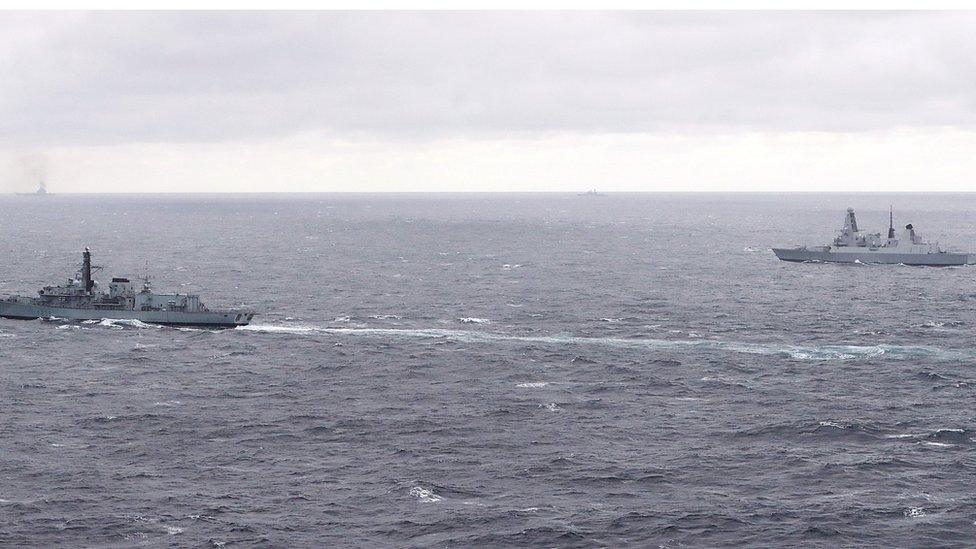
HMS Duncan (right) tracking a warship in the Russian taskforce
Two British warships are shadowing an aircraft carrier and other Russian naval ships as they pass the UK on their way to Syria.
Sources suggest the carrier Admiral Kuznetsov and its task force may sail through the English Channel overnight, after leaving the North Sea.
A Ministry of Defence spokesman said the ships would be "man-marked every step of the way" while near UK waters.
However, Nato said Russia had the right to operate in international waters.
The Russian task force's journey comes amid heightened tension between Russia and Nato.
"We will be watching as part of our steadfast commitment to keep Britain safe," Defence Secretary Michael Fallon said.
The Ministry of Defence said at about 13:00 BST the task force was "in the middle of the North Sea heading southwards".
At that stage it was understood to be about 100 miles (160km) off Edinburgh, but the MoD has not provided any further updates.
Type 45 destroyer HMS Duncan, escorted by the Type 23 frigate HMS Richmond, sailed from Portsmouth on Tuesday to track the Kuznetsov group as it headed south from the Norwegian Sea,

Analysis
By Jonathan Marcus, BBC defence and diplomatic correspondent
If, as anticipated, the Admiral Kuznetsov and its task force are heading for the eastern Mediterranean, this will be the first ever combat deployment for Russia's only aircraft carrier.
A Ministry of Defence spokesman says that the Russian flotilla could pass through the Strait of Dover on Thursday, though it could be significantly delayed if the carrier conducts flight operations or has to stop to refuel.
Two of the Russian vessels carry land attack cruise missiles and the carrier has an unknown number of aircraft on board.
These will enhance Russia's firepower off Syria but this is, above all, a demonstration of force projection; a signal from Moscow that it can deploy its military might when and where it chooses.

Russia already has about 10 ships off Syria, which have fired cruise missiles during Russia's bombardment of what it says are anti-government rebels in Syria.
The deployment comes as a "humanitarian pause" in attacks on rebel-held eastern Aleppo in Syria begins.
The temporary truce is part of a plan to allow civilians and fighters to leave, and Russian and Syrian air strikes have been halted since Tuesday.
Russian actions have created alarm in the West and, arriving at her first Brussels summit as UK prime minister, Theresa May said it was important to have a "united European stance" against "Russian aggression", which included "sickening atrocities" in Syria.
Downing Street sources said Mrs May had told EU counterparts that Russia's actions had "undermined the West's efforts" to provide a political settlement in Syria.
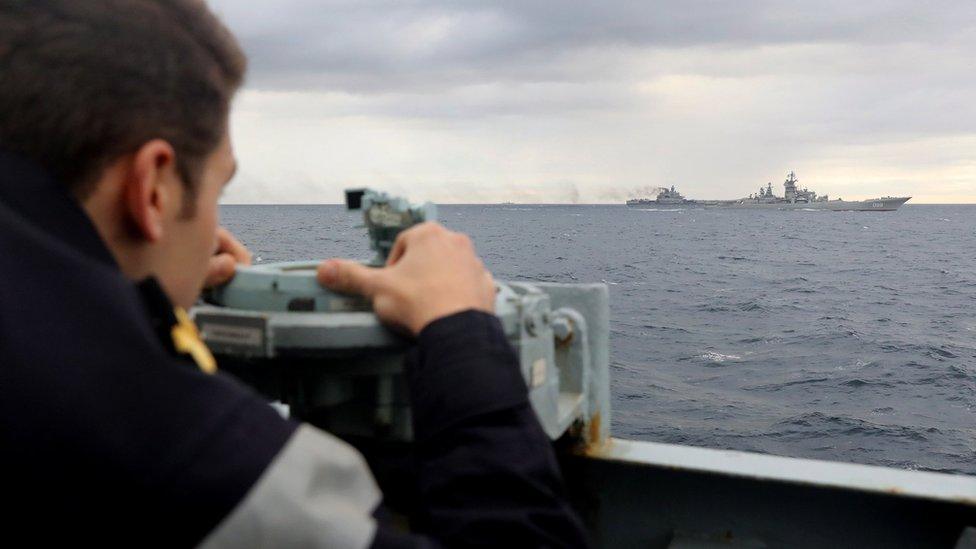
The British ships are escorting the task force as it passes the UK on its way to Syria
The Admiral Kuznetsov is the only carrier in the Russian navy. It can carry more than 50 aircraft and its weapons systems include granit anti-ship cruise missiles.
Former Nato secretary general Jaap de Hoop Scheffer told BBC Radio 4's World at One that Russian President Vladimir Putin was engaged in "risky posturing", and the West needed to respond with tougher sanctions against Russia.
"I'm not an admirer of Vladimir Putin, but he plays a weak hand rather well, because he knows that the European Union has no consensual Russia policy - so he can get away with it."
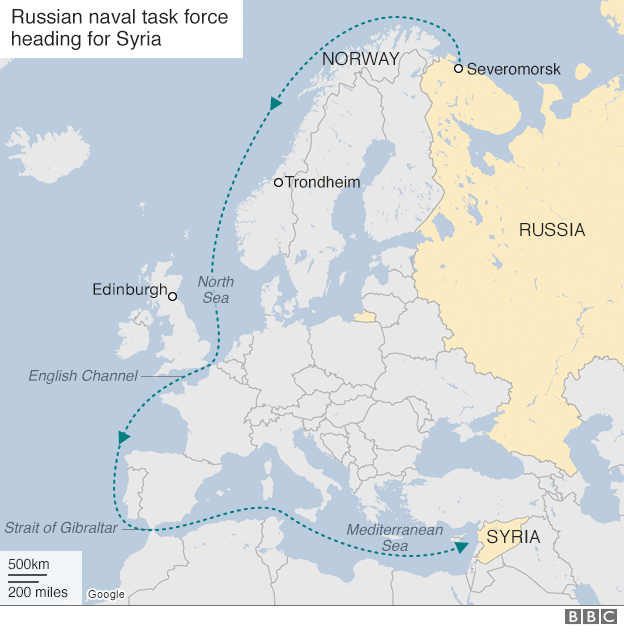
- Published21 October 2016
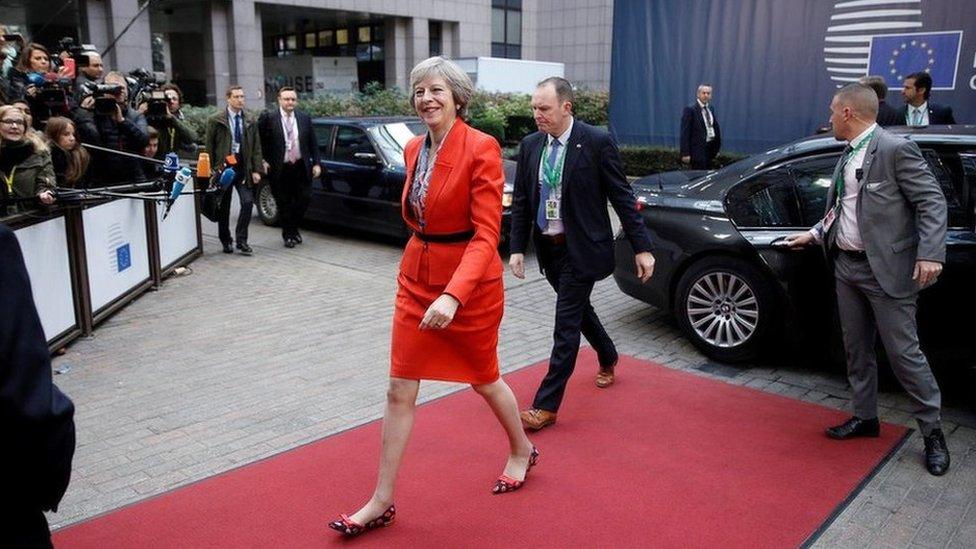
- Published20 October 2016
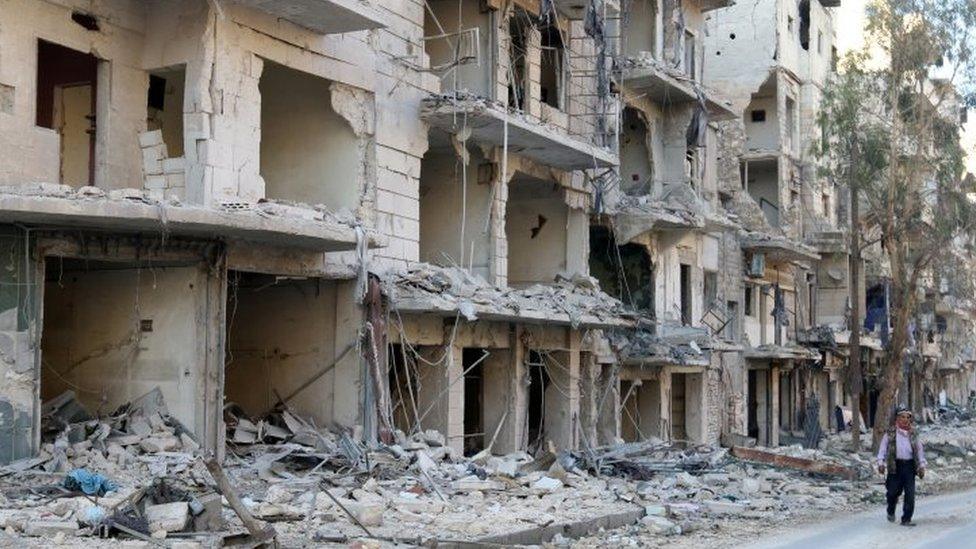
- Published19 October 2016
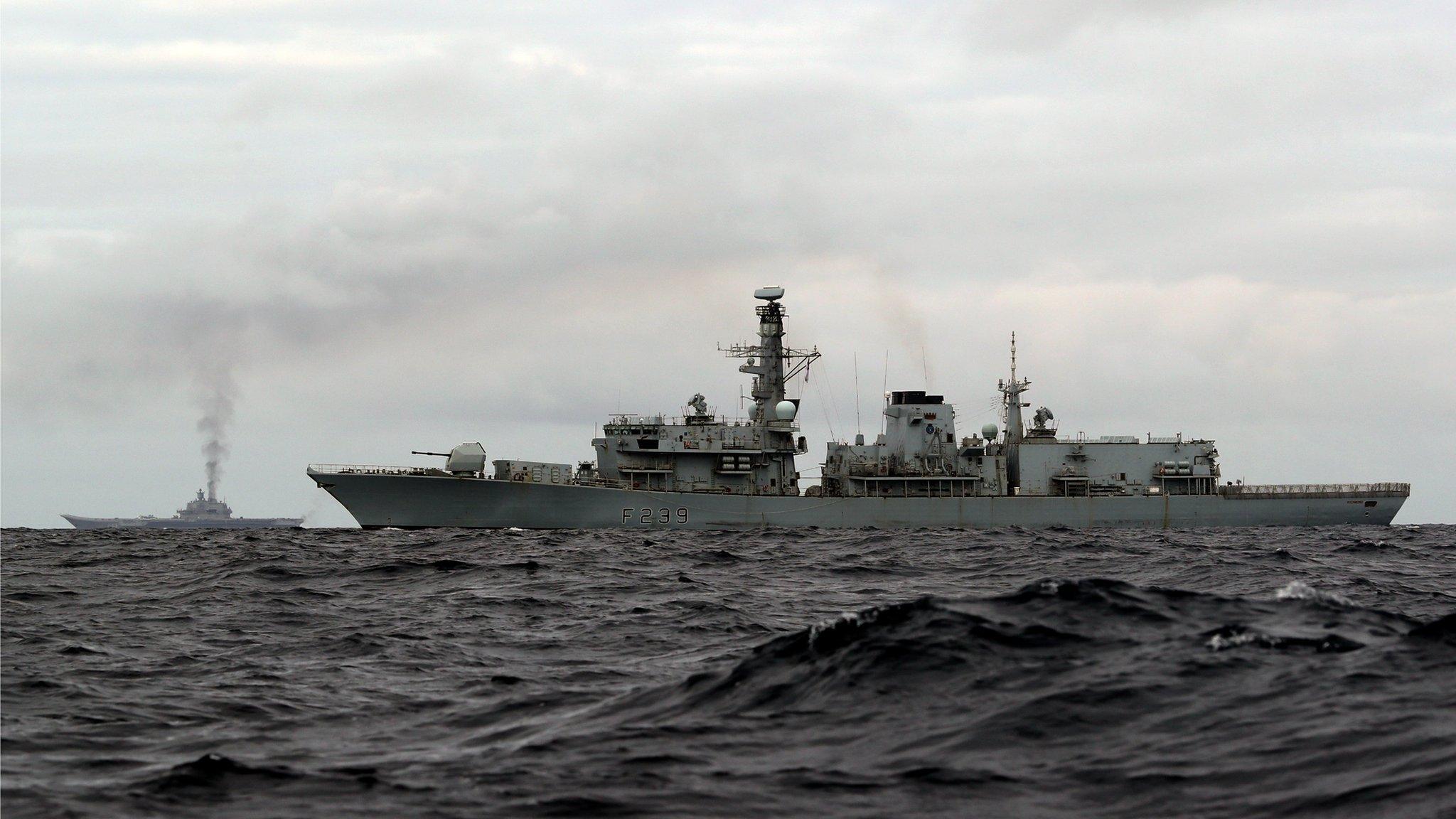
- Published18 October 2016
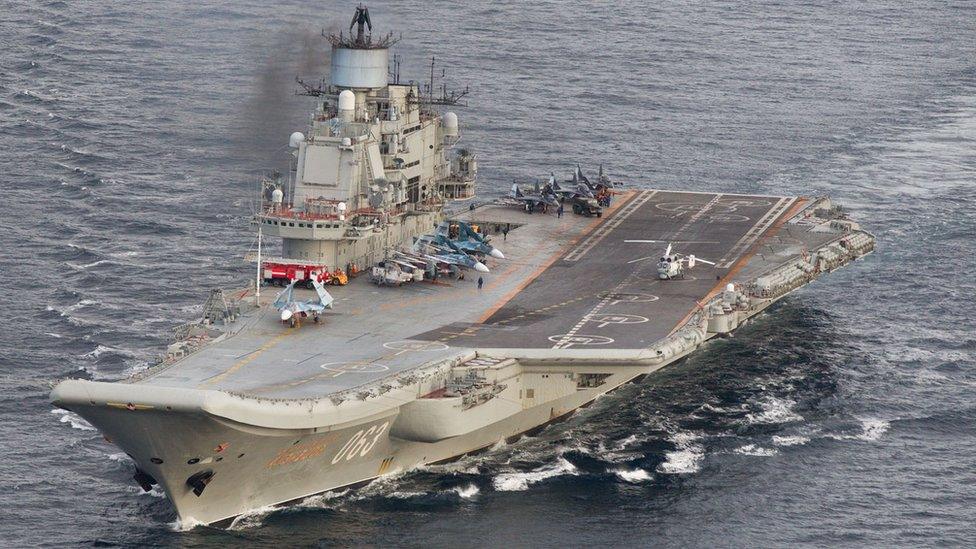
- Published4 October 2016
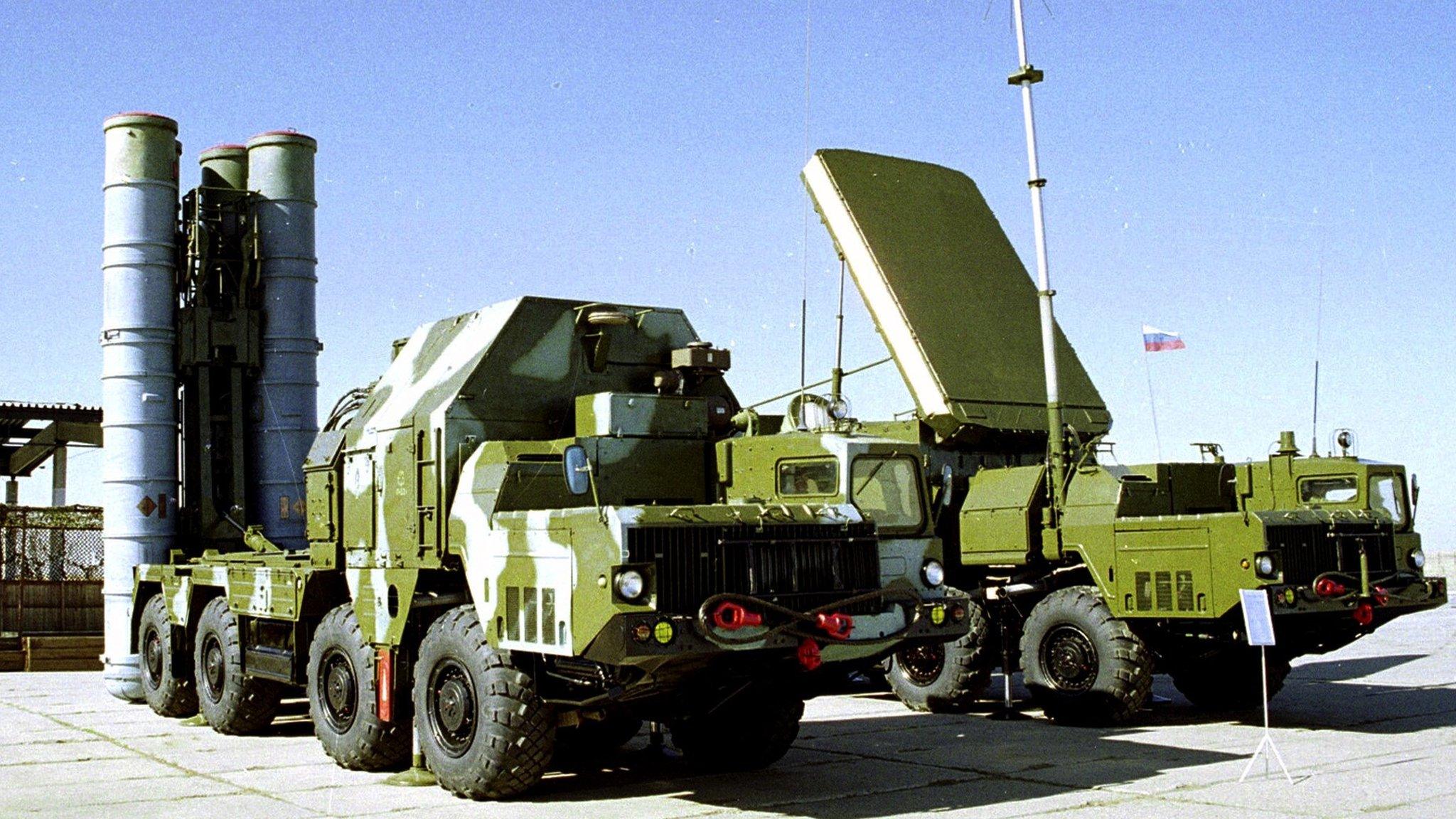
- Published10 October 2016
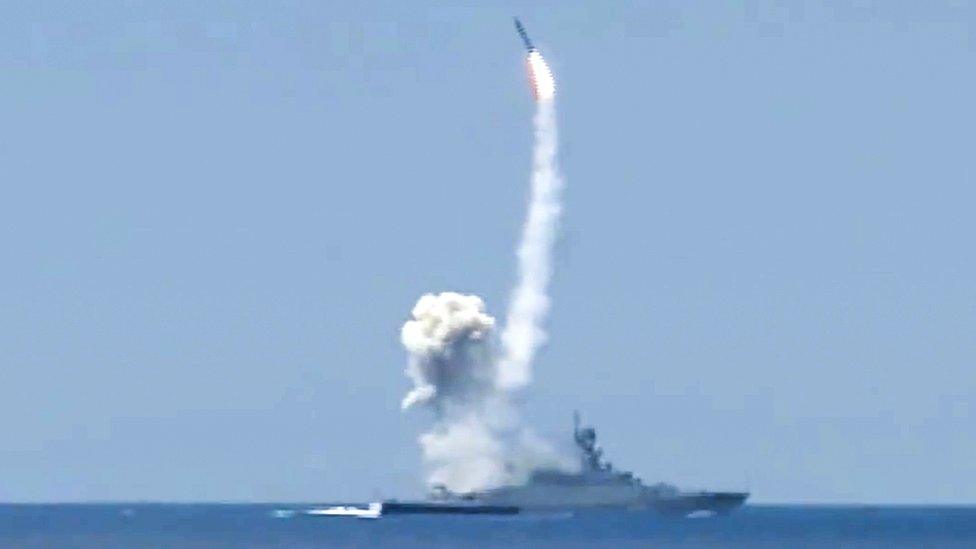
- Published9 October 2016
- Published11 August 2016